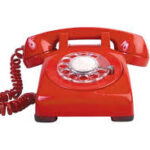


Let Go of Winter Weight
Somehow during fall and winter, you collected a few more items than you needed. Maybe it’s a primordial urge to hibernate and bring things in for comfort (can that really be necessary in Southern California?), or maybe we spend more time at home during the winter months so more things accumulate. But chances are, whatever you collected, you have things that you could let go of. It’s time for a good spring cleaning, and a good place to start is your closet.

National Green Week
Have you ever wondered when you realized that taking care of the environment is a good idea? Maybe it was on a family camping trip. Maybe it was watching a nature documentary. Maybe it was at school when they taught you about recycling. At some point, taking care of the environment went from your subconscious to your conscious.

Now you may take little conscious action to take care of the environment, or you may take a lot of conscious action. You may only do what you are forced to do, like not bringing home your groceries in plastic bags anymore because your local grocery store has been mandated not to use plastic bags. You be at the other extreme, making every living decision weighted towards the best environmental outcome. But you are probably somewhere in between. And during National Green Week, thousands of school students will learn a little more about taking care of the environment and how to live more sustainably.
National Green Week (link: http://www.greeneducationfoundation.org/greenweek.html) actually runs from Feb 2 through April 25. Schools around the country choose a week within that time frame and choose a project to focus on during the week. Projects fall under one of six themes: green energy, waste reduction, green thumb, I ride green, green building or sustainable water.
So what does this have to do with business? Well, if school kids can take small steps to being more sustainable in their lives, we can find somewhere to be more sustainable in our businesses.
Even though change can be instituted in large, radical giant steps, change can also be effectively implemented in small, continuous changes. Small changes are often easier to incorporate into your daily routine.
This year our big change goal is to purchase a car with an awesome gas mileage, perhaps even an electric car – we are still researching the options.
Our small change goal is to stop collecting business cards, using our smart phone apps on the spot to collect contact information.
We would love to hear your change goals. Drop us an email, or leave a comment on our facebook page.
A quick word on Holiday Decorating
Decorating for the holidays can take up a huge amount of time, money, energy, everything! Let’s get down to brass tacks so you can make it manageable, and enjoy your holiday season more.
Do what you have time for
Plan a time to put up your holiday decorations and a time to take them down. A friend of mine got out all of her Halloween decorations 3 weeks beforehand. They’ve been taking up her dining room table for more than a week now, and she’s super busy this week. Guess whether or not she’s going to get her table back this week?
If you have to decorate and you don’t have much time, be judicious about the items you put out. Choose only the ones you really love (and consider giving away the rest). Consider focusing on only a few areas of your house. For example Halloween, you might only decorate your front porch for trick-o-treater’s, no one is going to see your bathroom!
Manage the number of decorations you have
If you’re building up your decorations, it’s fun to add one or two new pieces each year. Maybe you already have plenty of decorations, but can’t resist buying just one more cute thing to put up. In that case, consider the old refrain, “Out with the old, in with the new.” That’s right, live by the following rule: let go of one thing, and bring one thing in. If you really have too many decorations, make this rule: let go of five, and bring one in!
Storing decorations
If you have no room to store holiday decorations, the solution is easy – give them away, recycle them, donate them, or sell them. If you have room to store decorations, choose clear bins to store them. You’ll be able to see the contents and keep the dust out. Put all the decorations that go in each room together. That way it’ll be faster to put them up the next year. Clearly label the outside of the bins. If you have a separate bin (or bins) for each holiday, store them in a relatively inaccessible place. After all, each holiday only comes around once a year. If you have all your decorations in one bin, keep the bin handier because you’ll be accessing it more often.

Give and Feast- Organizing for the Holidays
Are you packing your ghosts and discarding your jack-o’-lantern? Then you know that Thanksgiving is right around the corner, followed by the “busy season” as people prepare for Christmas, Hanukkah, and other solstice-time celebrations. The holidays are a time of joy and celebration, but all too often, stress and sadness come with the season. Family members and friends who have passed away are remembered, and the hubbub of parties, events, and vacation days can strain anyone’s schedule. Greeting cards, family gatherings, decorating, and gift giving all take a bit of work. But a pinch of planning and a dash of restraint can lift your eyes and your heart to see the beauty of the season.

How to remember to call your next big client
You know you need to follow up with your leads, but how do you keep track? If you have a corporate sales background, you will be used to using ACT or SalesForce or a similar enterprise level customer relationship management (CRM) software. And maybe when you transitioned to owning your own business, you kept the same system.
But if you’re a small operation, just you, or you and a few, solutions like ACT and SalesForce can be overly complicated and pricey.
The simplest way to manage your return calls is to schedule them in your calendar. However, this has the disadvantage that a flow of conversations cannot be captured. You might not remember what you said to the contact last time, especially if any length of time has passed since you last spoke. So not only do you need to be reminded to call leads, you need something that can track important details about the conversation.
There are many, many free or inexpensive CRM’s available for the small business owner. My favorite is Podio. Podio is free for teams 5 or fewer and only $9 per person per month over that. Podio is extremely flexible and can also double as a project management tool, and task management system. It has pre-made modules to get you started, but is also completely customizable. Their support people are also very responsive and helpful.
So what’s the best approach when it comes to choosing a CRM for your business? The best way is to start with the questions you want answered and find a system that will deliver those answers for you.
Some of the questions you may have are:
- Can I find my client’s contact information easily?
- Are all the data fields I require available or customizable?
- How does the system remind me to call leads?
- What sort of reporting does the system allow?
- Can you easily track who needs to contact whom?
- Can you easily find out where you should be focusing your efforts based on customer information?
- Does the system integrate with my accounting system/contacts/task list?
- Does the system work on all the necessary platforms (PC, Mac, iPhone, Android, etc.)
- Are the mobile apps suitable or sufficiently sophisticated to handle what I need on the road?
- Can I sync information across platforms and with integrated services?
- How easy is it for my staff to update the information?
- How do we communicate changes?
- How do we communicate tasks that need to be done?
Remember that, as with all productivity tools, your CRM system should support your teams’ productivity, not inhibit it.
If you choose to investigate Podio, and need some help setting up your system, give us a call. We can help get you going.
How to Manage your paper action items
Many people who struggle with paper management commit three deadly sins:
- They fail to file (or scan and shred) the paperwork they have completed any actions on, but need to keep for future reference
- They fail to prioritize and take action on their action items
- The keep items they do not need mixed in with their other paperwork
The result – they are drowning in paperwork.
This focuses on solving just one of the deadly sins – what to do with your paper action items.
As with any organizing, there is not just one way to deal with your action items. In any case, the aim of any system to deal with your action items should be simple to implement and maintain. It should capture your action items and ensure they can be processed in a timely manner.
Here are five methods for taking care of your action items.
- GTD – getting things done, defined by David Allen
- 4 quadrants – from Stephen Covey
- Tickler system
- Hotel system designed by Dolores Kaytes
- Simple priority system
Let’s look at each in turn.

How can going paperless benefit my business?
Going paperless is a bit of a misnomer. It’s impossible to be completely paperless, even in this digital age. There are some documents that need to be maintained in the original hard copy – certain contracts, certificates and so on. But not withstanding those hard copy “must haves,” a great deal of the paperwork that is dealt with today can go digital. Digitizing sales orders, invoices, reference material, business cards, and business documentation is a smart move.
The summary:
Benefits
- Reduce paper clutter
- Mobile access
- Fast searching
- Low cost storage
Tips
- Choose location – desktop or cloud
- Choose file structure
- Use filename convention
- Use scanner regularly


